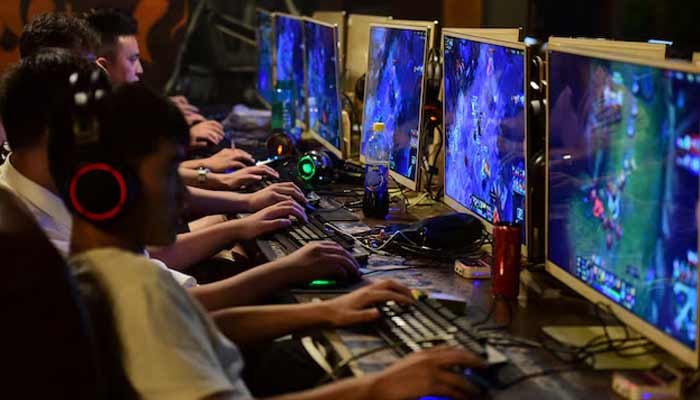
Representational image of Chromebook.— Google
#Google #manufacture #Chromebooks #open #office #Pakistan #minister
In a major step towards making Pakistan a regional IT hub, Federal Minister for Information Technology and Telecommunications Shaza Fatima Khwaja said on Saturday that Google will manufacture around 600,000 Chromebooks in the country annually.
Talking to the media, he said that Google has completed its registration in Pakistan and plans to open its office in the country soon.
Highlighting recent developments under the Prime Minister’s leadership, he said Pakistan’s engagement with leading global technology and social media companies has entered a new and fruitful phase.
Shaza explained that Google’s indigenous Chromebook manufacturing in partnership with the Ministry of Defense and NRTC shows how public-private partnerships can advance IT manufacturing.
The Minister said that the aim of this initiative is to provide affordable, high-quality equipment, especially for students and the education sector.
“Such high-tech projects reflect the growing confidence of global companies in Pakistan’s economy, while also promoting technology transfer, international best practices and new job opportunities,” he added.
During a visit to the Haripur facility, the minister said he was happy to see around 600 men and women employed there. “As production expands, the assembly line will be expanded to create more jobs and enable Chromebook exports,” she said, highlighting the strong participation of women engineers in advancing Pakistan’s technology landscape.
The minister also said that his ministry has finalized a memorandum of understanding (MoU) with Google to provide tech training to youth, especially girls, with a focus on artificial intelligence (AI).
“We plan to open AI labs in Pakistan in collaboration with Google, specifically targeting secondary schools to integrate AI education into the curriculum,” he said.
The Ministry of Education and provincial authorities in Punjab, Sindh, Balochistan, and Khyber Pakhtunkhwa are actively supporting this initiative.
Shaza Fatima highlighted recent developments with META, noting that its regional team visited Pakistan last month to train federal and private sector media teams on disinformation and unknown administration.
Saudi Group Launches AI Hub in Pakistan
In a major move towards AI accessibility, Meta’s AI platform is now available in Urdu, allowing students and citizens across Pakistan to learn, experiment and develop AI applications in their national language.
On the social media front, he said Tikook has launched a dedicated Steam feed in Pakistan, providing free educational content in science, technology, engineering and mathematics. The initiative provides access to learning resources through a widely used platform to students and marginalized communities.
“This partnership with global tech leaders highlights the immense potential of our youth, who are not only hardworking but also innovative and entrepreneurial,” Shaza Fatima said, emphasizing that initiatives like AI labs, Urdu language platforms, and educational social media features are aimed at equipping Pakistan’s next generation with skills for a tech-driven future.
He also highlighted Pakistan’s growing cooperation with Saudi Arabia in technology and AI, calling it an important step towards accelerating economic growth and creating employment opportunities.
He said, Saudi Arabia’s Go Telecommunications Group has launched an artificial intelligence (AI) center in Pakistan, linking local tech companies with Saudi firms.
“Through this platform, Pakistani freelancers, small businesses and micro companies can provide technology services to Saudi companies remotely without the need for a physical office in Saudi Arabia,” he explained. Saudi companies are also setting up offshoring offices in Pakistan, which creates employment and increases exports.






